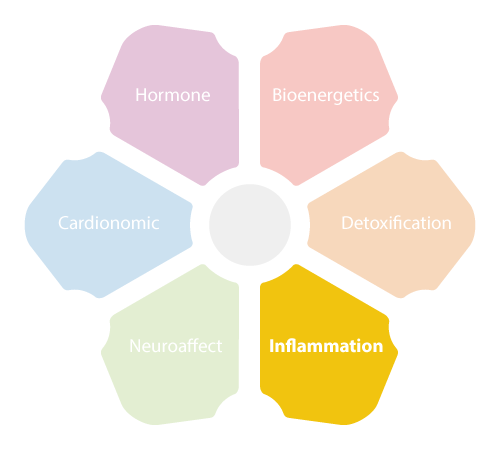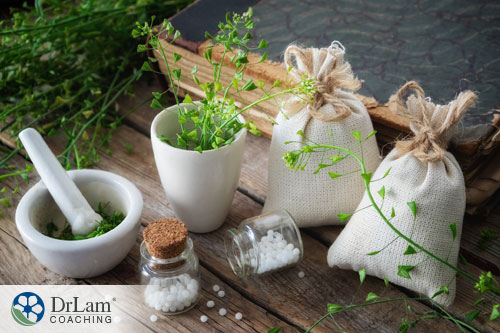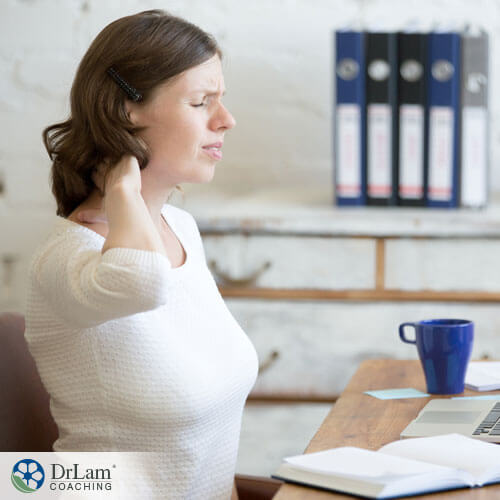When you are under stress, your body can experience several unpleasant symptoms. It can range from feeling extremely fatigued and irritable, to different health problems like being susceptible to the common cold. One of the common symptoms of experiencing stress is physical discomfort due to neck pain and tension. In this regard, one might say that the key to reducing neck pain lies in one’s ability to reduce any stress.
When a person becomes stressed, the body may experience a range of physical symptoms like low energy levels, discomforts like headaches or an upset stomach. Stress can also manifest itself physically as body pain, one of which is neck pain. This is because as your body becomes tense, tightness would build up around your neck muscles.
Stress-induced neck pain refers to pain that is triggered by a specific emotional or psychological factor. In some cases, stress can also worsen the neck pain. This might explain why a study in Iran found a direct link between the incidence of neck and shoulder pain and work-related stress. Also, neck pain seems to be more prevalent among women than men, according to a Swedish study. This is perhaps because women perceive their everyday life to be more stressful.
 As a way to cope with stress, the body would typically engage its NeuroEndoMetabolic (NEM) stress response system once a stressor is detected. The NEM stress response system is comprised of the inflammation, detoxification, neuroaffect, cardionomic, bioenergetics and hormone circuits.
As a way to cope with stress, the body would typically engage its NeuroEndoMetabolic (NEM) stress response system once a stressor is detected. The NEM stress response system is comprised of the inflammation, detoxification, neuroaffect, cardionomic, bioenergetics and hormone circuits.
The inflammation circuit is made up of the microbiome, gut and immune cells. Inflammation is the body’s natural biological response to harmful stimuli. This could be in the form of damaged cells, toxins or pathogens. Regardless of the source, the primary goal of inflammation is to eliminate the initial cause of cell injury.
Meanwhile, the hormone responsible for managing inflammation in the body is cortisol. This is also called the primary stress hormone, produced by the adrenal glands in the hormone circuit.
As long as the stress is present, the adrenals would continue producing cortisol. However, if the stress continues to persist, the adrenal glands would no longer be able to keep up with the demand at some point. Hence, chronic stress causes a state of hormonal imbalance in the body. This condition is called the adrenal fatigue syndrome (AFS).
The exhaustion of the adrenal glands leads to reduced cortisol secretion which in turn causes problems for the body’s inflammatory response. Without enough cortisol, inflammation in the body is now left unmanaged.
Unfortunately, chronic low-grade inflammation caused by different types of stresses increases the permeability of the gut lining. This increased permeability causes the toxins and other harmful substances to easily enter the bloodstream. The central nervous system is also affected as a result, with the potential to cause a depression. This may explain why several studies suggest that there is a link between inflammation in the body and depression disorder.
When it comes to reducing neck pain, there are ways to find relief without using any type of medication. However, before trying any treatment, it is best to consult with your physician or qualified healthcare practitioner first. This is especially critical if you are already suffering from an existing physical condition which can be worsened by any form of physical activity or treatment. It is important to rule out any anatomical abnormality and understanding the risks before trying these maneuvers. Those with adrenal fatigue are very sensitive to any changes in their body, so plenty of care must be taken before trying something new.
That said, here are some practical ways to relieve stress-induced neck pain:
You can relieve tension in the neck by practicing some neck stretches even while you are seated. Simply place your right hand on top of your head and keep your left hand on your side. Then, proceed to pull your head gently to the right until your ear is almost touching your shoulder. Hold this position for about 30 seconds and take some long breaths. Repeat this stretch again this time on the opposite side.This simple exercise will help you reducing neck pain.
Getting enough sleep regularly is a great way to make sure that your body can cope with stressful situations effectively. A good night’s sleep will not only recharge your energy levels, it will also help reducing neck pain. Your sleeping position is important too and also using the proper pillow and mattress. A comfortable sleep position will not only help with reducing neck pain but also promote better sleep quality.
Setting aside some leisure time for yourself allows your body to relax and naturally lower its stress levels. Relaxation is one of the best ways to help you with reducing neck pain. A study conducted in The Netherlands found that engaging in leisure time physical activity helps people who lead a sedentary lifestyle to reduce muscle injuries including back and neck pain.
Acupuncture has long been a part of traditional Chinese medicine. It utilizes fine needles to stimulate parts of the body that may be suffering from tension and pain. There are several studies that have observed the effectiveness of acupuncture. This alternate treatment method is widely practised successfully to relieve muscle tension and aches and includes reducing neck pain.
 There are various homeopathic remedies that are known to be effective in reducing neck pain. It should be noted however, that you should consult your physician before taking any of them for the first time. This is because your body may have an intolerance for some of these natural ingredients. By ingesting any of these homeopathic ingredients may just add further stress to your body.
There are various homeopathic remedies that are known to be effective in reducing neck pain. It should be noted however, that you should consult your physician before taking any of them for the first time. This is because your body may have an intolerance for some of these natural ingredients. By ingesting any of these homeopathic ingredients may just add further stress to your body.
If you are not intolerant or allergic to any of the ingredients, here are some homeopathic remedies for reducing neck pain:
Bryonia is a plant whose roots are often used for medicinal purposes. It is typically used to treat acute inflammation in the body. A study published in the Open Chemistry Journal has found this plant may be effective enough to treat rheumatic disorders and help reducing neck pain because Bryonia is effective against muscular pain and inflammation.
Gelsemium is a popular homeopathy medicine that may act as an effective remedy for reducing neck pain. It is often used to treat tenderness and soreness in muscles of the neck area, especially if the condition is accompanied by a persistent headache.
Chelidonium is a medicinal plant that is used as a homeopathic remedy for reducing neck pain. When a person suffers from neck pain, it is often accompanied by a sensation of tenderness and heaviness. Chelidonium is reported to provide relief from these sensations. A study conducted in Poland observed that Chelidonium can work as an effective anti-inflammatory agent.
Cimicifuga racemosa or black snakeroot is a homeopathic remedy that is often associated with the treatment of muscle cramps and joint pains. Black snakeroot can therefore be recommended for reducing neck pain and a stiff neck. A study conducted in India had also confirmed that cimicifuga racemosa has anti-inflammatory properties.
Arnica montana is a popular homeopathic remedy that is used to treat pain, following an injury. Back pain and stiffness can also be relieved as several studies have indicated that this natural product contains anti-inflammatory properties. Arnica, as it is popularly known, would benefit in reducing neck pain.
Kalmia is a homeopathic remedy that is often used in reducing neck pain. It is especially useful in providing relief when the neck feels very tender when touched and the pain gets worse with movement. Moreover, with this type of neck pain, it is also very uncomfortable when the arms are extended or stretched.
Causticum or potassium hydrate is the homeopathic remedy of choice if a patient is experiencing neck pain and find it very painful to turn the head. Additionally, a study conducted in 2015 study observed that causticum is sometimes used for the treatment of muscle tremors and another study concluded that causticum possesses anti-inflammatory properties. This means, causticum can be used as an effective remedy for reducing neck pain.
 Evidently, stress is a major cause of muscle pain in the neck and back and it is important to find effective remedies for reducing neck pain. Although, there are many alternative remedies like medicinal herbs or supplements that are available for providing relief and help your muscles to relax, it is vital to consult with an experienced practitioner before starting anything new. This is especially important if you have AFS, as taking the above herbs might make your condition worse. It starts with finding the right course of treatment for yourself with the help of a healthcare professional. Keep in mind that stress can trigger or worsen your neck pain. With adrenal fatigue, it is essential to find ways to achieve a calmer state of mind that will allow you to cope with stress. This way, you will also improve your quality of life.
Evidently, stress is a major cause of muscle pain in the neck and back and it is important to find effective remedies for reducing neck pain. Although, there are many alternative remedies like medicinal herbs or supplements that are available for providing relief and help your muscles to relax, it is vital to consult with an experienced practitioner before starting anything new. This is especially important if you have AFS, as taking the above herbs might make your condition worse. It starts with finding the right course of treatment for yourself with the help of a healthcare professional. Keep in mind that stress can trigger or worsen your neck pain. With adrenal fatigue, it is essential to find ways to achieve a calmer state of mind that will allow you to cope with stress. This way, you will also improve your quality of life.
When a person is feeling stressed out, various physical symptoms of stress can manifest in the body. One of them is body pain, which may include soreness or stiffness in the neck area. In this case, the key to reducing neck pain significantly would be to lower one's stress levels.
